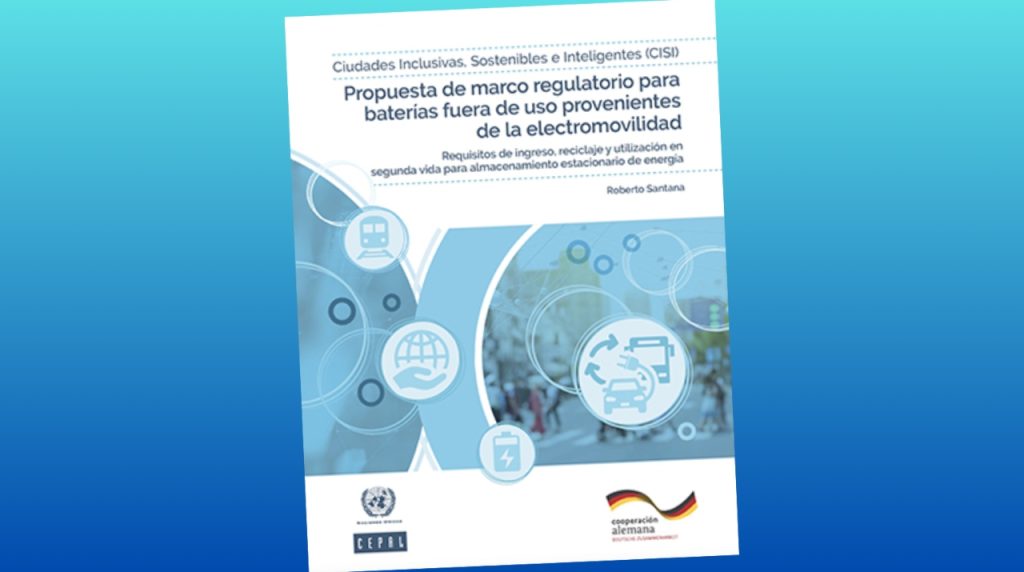
ECLAC Submits Proposal for a Regulatory Framework for End-of-Life Batteries in Latin America and the Caribbean

The Economic Commission for Latin America and the Caribbean (ECLAC) presented a proposal for a regulatory framework for end-of-life batteries from electromobility in Latin America and the Caribbean.
The initiative arises in the context of the program “Inclusive, sustainable and smart cities in the framework of the 2030 Agenda for Sustainable Development in Latin America and the Caribbean”, executed by ECLAC in collaboration with the Deutsche Gesellschaft für Internationale Zusammenarbeit (GIZ) and financed by the German Federal Ministry for Economic Cooperation and Development (BMZ).
The agency stresses that when the battery capacity drops below 70%-80% it can no longer be used in transportation, but can be reused (second life) for energy storage, for example, in a solar photovoltaic power installation, or recycled to extract valuable components.

You may also read: ECLAC: Electric Mobility among the 15 Growth Opportunities in Ibero-America
Document Details
The proposal establishes requirements for the entry, recycling or second-life use of batteries, with the aim of ensuring proper management of these key components of electric vehicles, within the framework of extended producer responsibility.
Among the measures highlighted is the obligation to provide information on batteries. On the one hand, this information is essential for compliance with safety standards.
On the other hand, detailed information on the characteristics of the battery and its chemical composition can reduce the costs of systematizing the recycling or second-life use processes.
According to ECLAC, the regulatory framework designed seeks not only to prevent negative environmental impacts associated with the mishandling of used batteries, but also to convert them into a valuable source of materials and energy, contributing to the reduction of natural resource extraction through recycling or second-life use.





